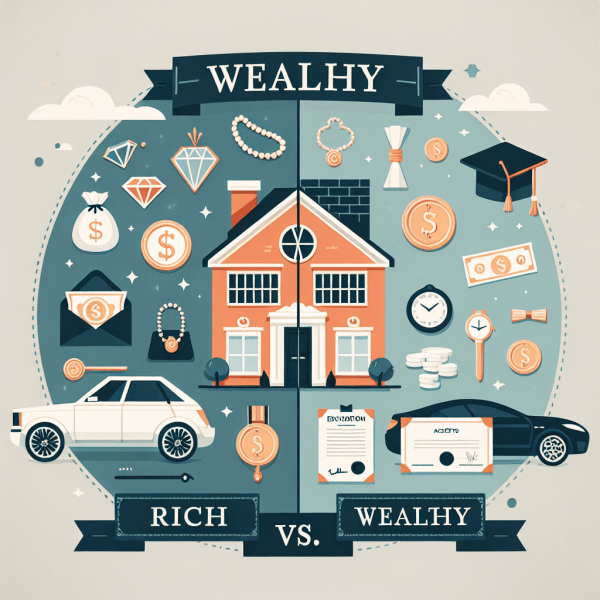Introduction
The English language is rich with nuances, particularly in its descriptive vocabulary surrounding financial status. Among terms used to describe individuals with significant financial resources, 'rich' and 'wealthy' are often used interchangeably. However, a closer examination reveals distinct connotations and usage that are important for understanding their precise meanings.
Definitions
Rich: The term 'rich' typically refers to having a lot of money or valuable resources. It is often associated with a high income or a substantial amount of immediate assets. However, being rich does not necessarily imply stability or longevity of wealth; it can be associated with fluctuations in financial status.
Wealthy: On the other hand, 'wealthy' goes beyond mere monetary abundance. It suggests a deeper, more sustainable level of financial security and can imply a well-preserved inheritance or substantial investments. Wealthy individuals often possess a diversified portfolio of assets, including property, stocks, and other investments that provide ongoing income.

Detailed Comparison
Financial Stability
Rich individuals may experience temporary financial highs—for instance, a sports star who earns millions for a brief career. In contrast, wealthy individuals often maintain their financial security over time, as their wealth is likely accrued through sound investments and assets.
Example: "While the athlete was rich, his spending habits led him to bankruptcy shortly after retirement." / "The business tycoon is wealthy, with a network of companies ensuring his financial stability for generations."
Income Versus Assets
Being rich usually pertains to high income rather than a holistic view of wealth. It's possible to be rich for a short period without having long-term assets to fall back on. Wealthy individuals, however, derive their financial status from a combination of income, savings, and other investments.
Example: "She is rich as a result of her successful career as a filmmaker." / "Their family has been wealthy for generations, owning multiple properties across the country."
Social Perception
The terms can carry different social implications. 'Rich' might evoke images of flashy lifestyles and ostentatious spending, while 'wealthy' typically brings to mind a sense of sophistication, legacy, and responsibility. Societal behaviors may differ between these two groups; wealthy individuals might be engaged in philanthropy or community-driven initiatives, while rich individuals may focus on personal luxuries.
Example: "The rich lifestyle is often depicted in reality TV shows." / "The wealthy family is known for its charitable foundation that supports local education."
Conclusion
In conclusion, while 'rich' and 'wealthy' are both used to denote financial abundance, the terms encapsulate different aspects of monetary status and societal perception. 'Rich' often conveys a transient, income-focused state, while 'wealthy' points to a more enduring, asset-driven prosperity. Understanding these distinctions can enhance one's vocabulary and provide deeper insights into discussions surrounding financial status.








Have a discussion about this article with the community:
Report Comment
We're doing our best to make sure our content is useful, accurate and safe.
If by any chance you spot an inappropriate comment while navigating through our website please use this form to let us know, and we'll take care of it shortly.
Attachment
You need to be logged in to favorite.
Log In